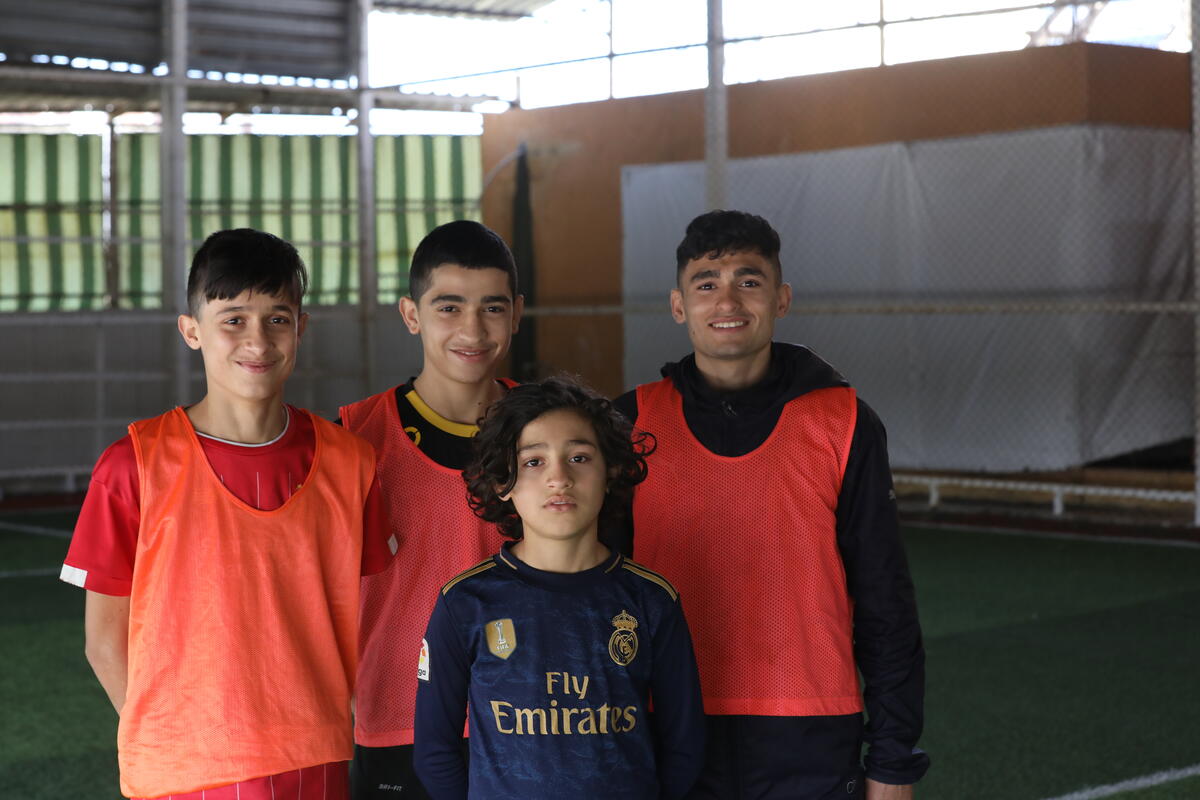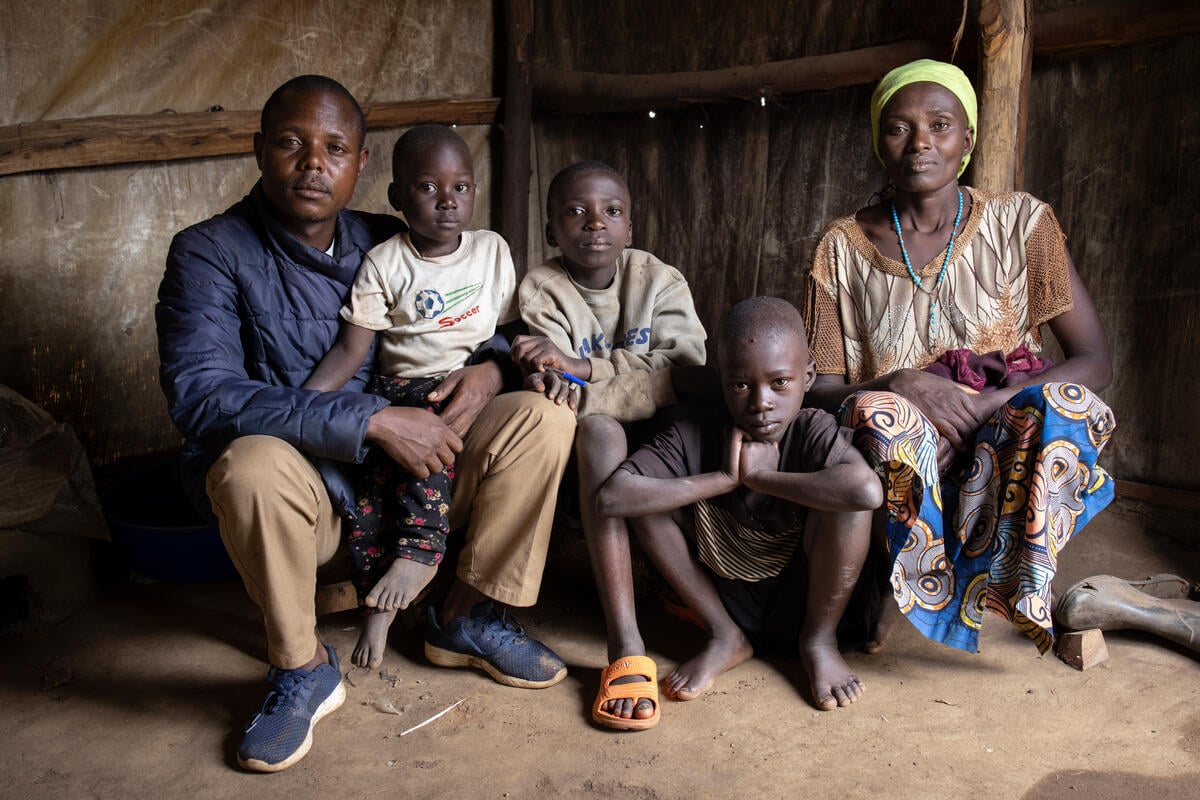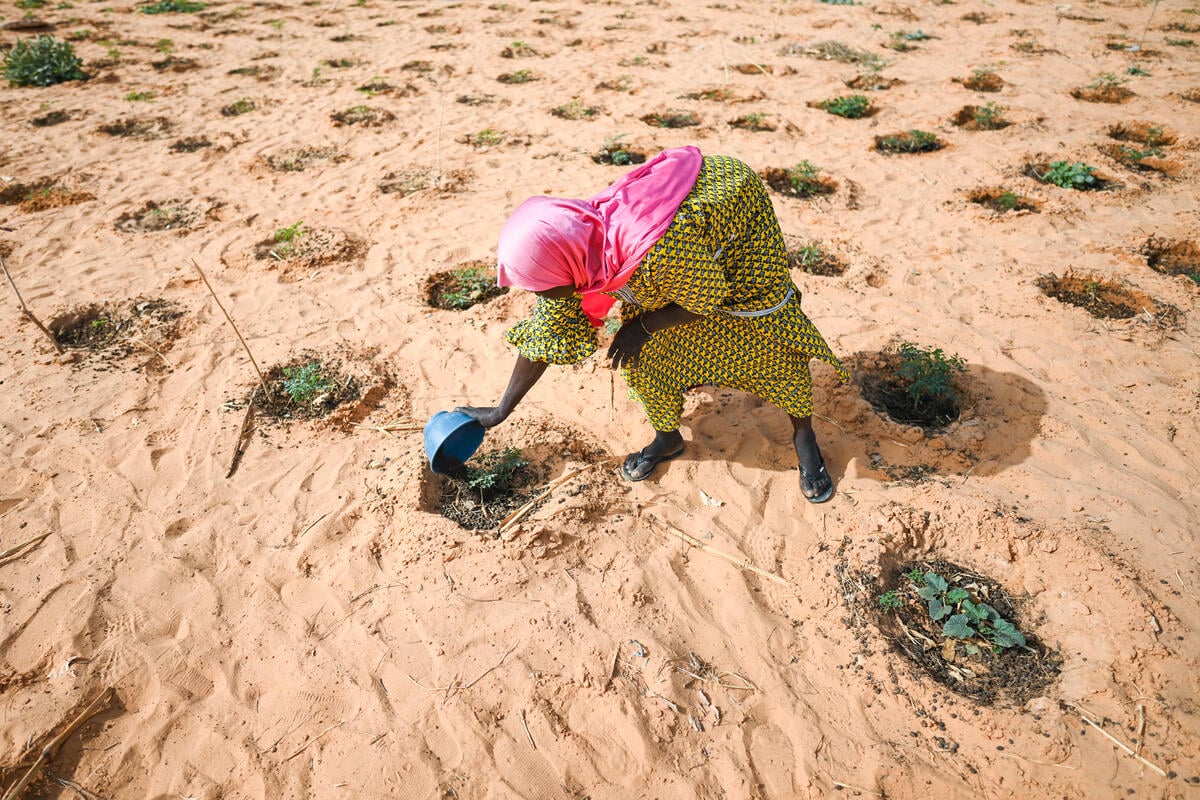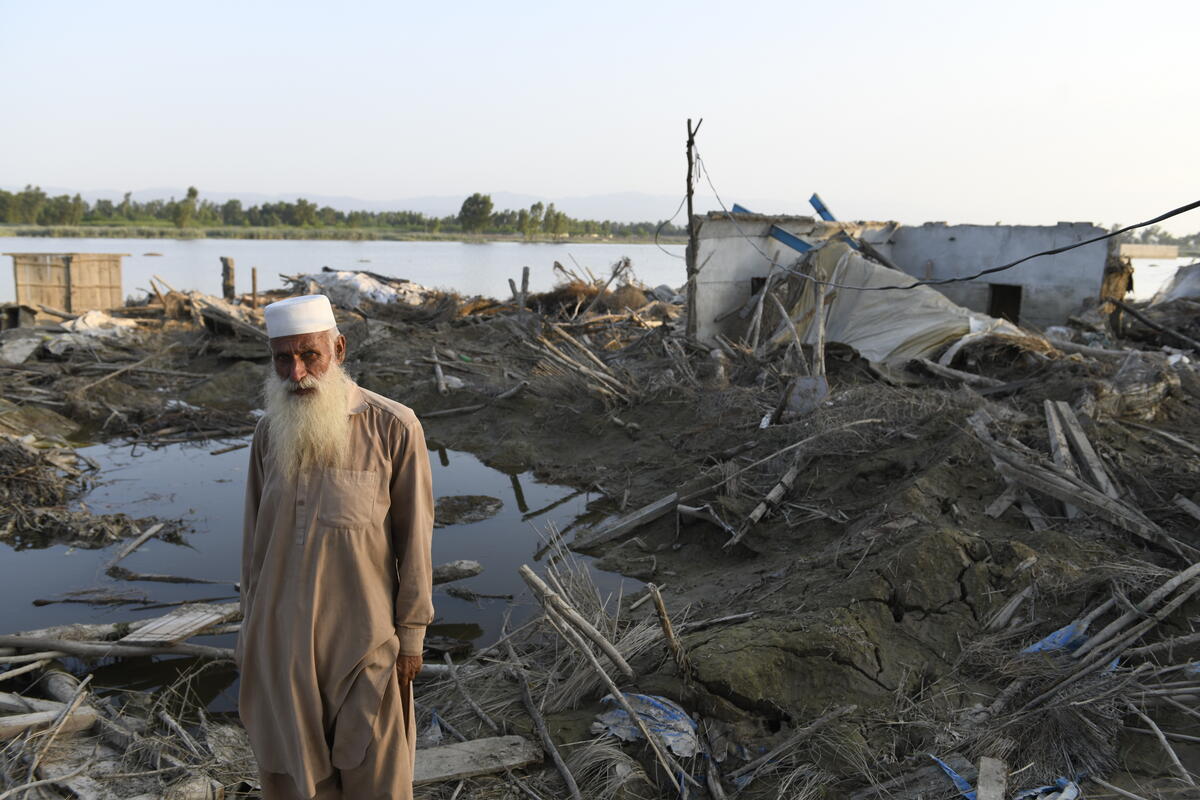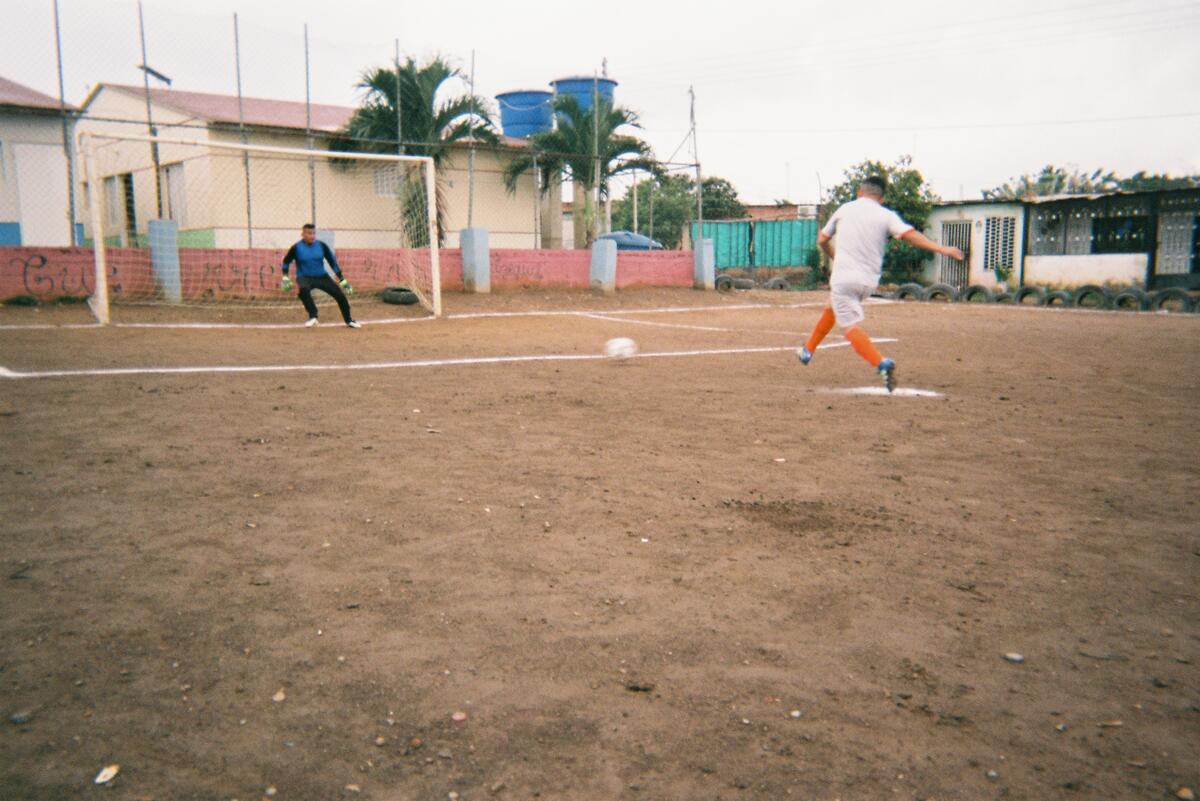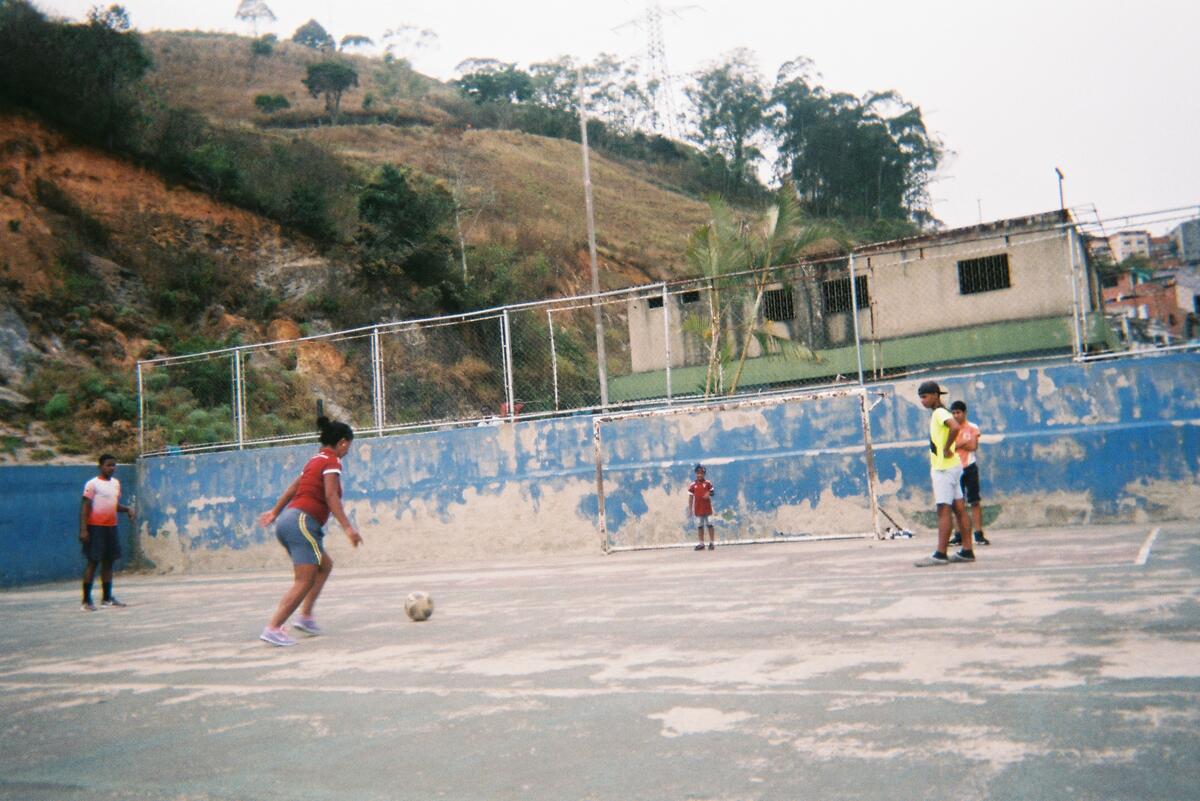Syrian brothers in Lebanon are a team on the football field and at home
Syrian brothers in Lebanon are a team on the football field and at home
In the living room of the El Jadoua’a family’s small apartment in Abbassiye, southern Lebanon, dozens of medals hang from the wall and a collection of trophies won at local tournaments covers an entire tabletop – testament to eldest son Mohammad’s passion and talent for football.
Together with three of his football-mad younger brothers – Wissam, 16, Fadi, 15, and Mahmoud, 12 – Mohammad, 18, dreams of becoming a professional player. The brothers devote much of their time to practicing in an empty lot near their home, under the guidance of a Lebanese family friend who coaches the boys for free.
“They started playing football with a ball made out of paper and tape,” the boys’ mother Orouba remembers. “Even if they don’t become professional players, for me, they mean the world. I will always have their medals hanging on my walls.”
She and her family have faced tragedy and hardship since the outbreak of crisis in Syria. Her twin boys Hadi and Shadi were still young when they began to experience seizures, but Orouba and her husband were unable to find adequate medical treatment.
Hadi passed away shortly after, and the family fled Syria in 2011 to seek safety in Lebanon. But despite their best efforts to treat Shadi’s condition, his epilepsy was misdiagnosed, and after being prescribed the wrong medicine his condition became worse. Now aged 11, he suffers from up to 14 seizures an hour that mean he requires round-the-clock care.
“Shadi’s condition is terrible,” Orouba says. “He needs to see a doctor who is an expert in his condition.”
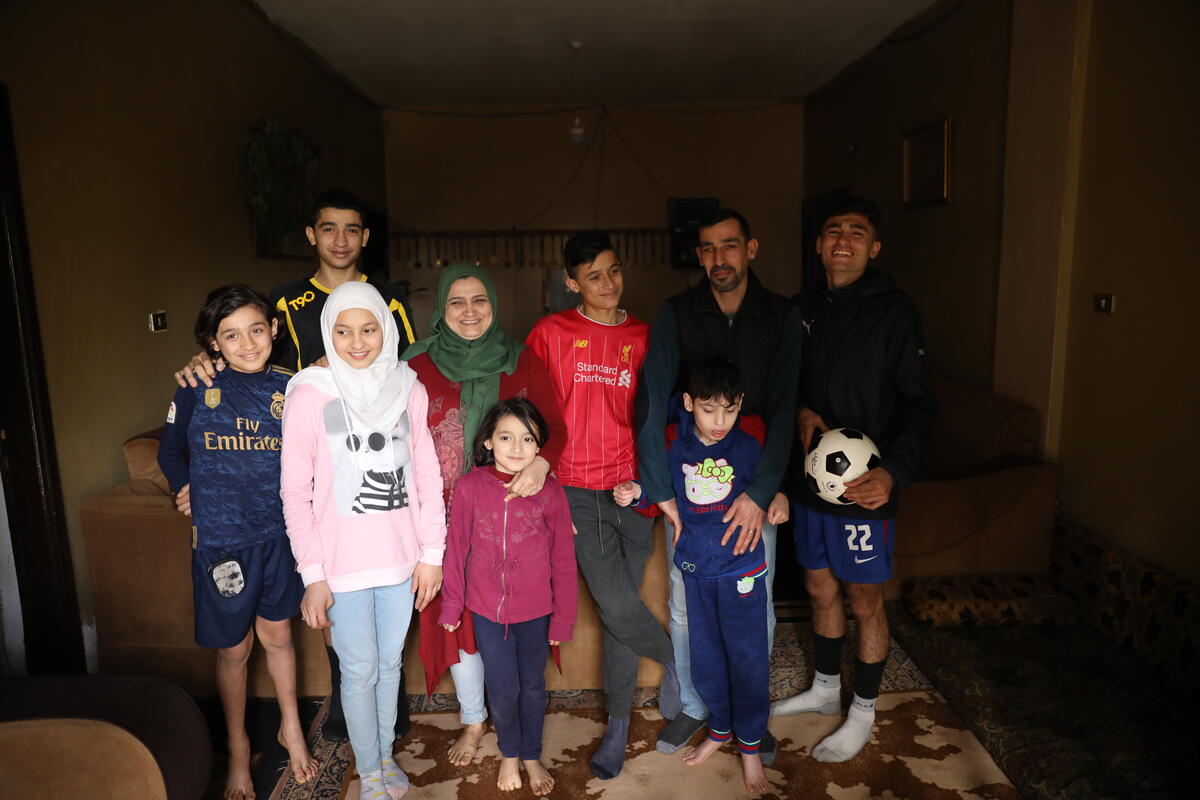
But the cost of sending Shadi to a specialist remains out of reach for the family. Orouba’s husband Hussein is the only breadwinner, earning just 60,000 Lebanese Pounds a day working in a grocery shop – equivalent to just US$2.5 amid the hyperinflation of Lebanon’s ongoing financial crisis, which has wiped 90 per cent off the value of the country’s currency.
According to a 2021 Vulnerability Assessment of Syrian refugees in Lebanon, 9 out of 10 Syrian refugees now live in extreme poverty. Food prices have increased by 557% over the past two years, which along with fuel shortages and currency devaluation has pushed many Lebanese and refugee families close to breaking point.
Amid the crisis, the family has accumulated heavy debts that left them unable to pay their rent. They only avoided eviction thanks to assistance from UNHCR, the UN Refugee Agency. But they still struggle to feed themselves and were forced to withdraw the children from school due to the additional costs involved.
Denied the opportunity to get an education, Shadi’s brothers now put their hope in careers as professional footballers. The eldest, Mohammad, has excelled in local tournaments – as demonstrated by his impressive collection of medals and trophies – and his Lebanese coach says he has the talent to succeed if given the opportunity.
“Because he is Syrian, Mohammad is not allowed to play in official football championships in Lebanon,” he explains. “But I believe he can become a great player if he trains and plays at a [professional] level.”
The brothers’ commitment on the pitch is driven by more than purely footballing ambition. They dream of making it as professionals to improve the family’s circumstances and get their brother Shadi the specialist treatment he urgently needs.
Off the pitch, each plays an active role in Shadi’s care. “My eldest son, Mohammad, feeds him; Wissam showers him; Fadi clothes him; Mahmoud cannot sleep without Shadi next to him,” Orouba says.
"They are one team – Shadi's team."
Whether or not any of her boys make it as a professional footballer, her pride in the way they look out for their brother and strive to improve his situation clearly shows.
“They are Shadi’s defenders. I know they’ll keep on standing by their brother no matter what life brings our way,” she says.
“I feel they are one team – Shadi’s team.”


